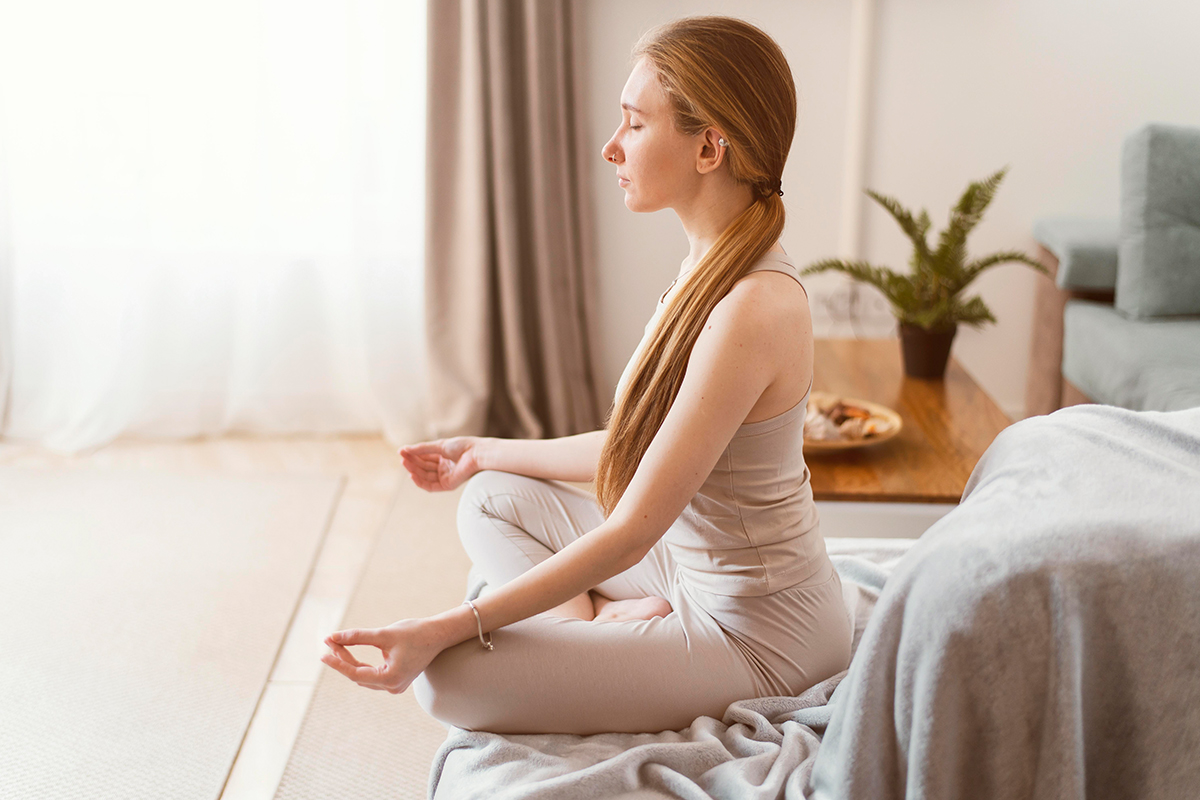In today’s world, where information pours in an endless stream and the expectations of society, work and personal life create considerable stress, stress has become an integral part of everyday life. One effective method of dealing with it is meditation. Let’s take a look at the basic techniques of meditation for stress relief.
Benefits of meditation for stress reduction
Meditation, despite its ancient history, is becoming increasingly popular in the modern world thanks to numerous studies confirming its effectiveness.
Relaxation and Switching
Meditation helps to reduce levels of the stress hormone cortisol, improve sleep quality, increase concentration and promotes an overall improvement in physical and emotional well-being.
Meditation works on the principles of relaxation, deep breathing and mindfulness. Through these elements, a person can shift their attention from external stressors to their internal state, giving themselves a chance to ‘reboot’. Even 10-15 minutes of meditation a day can significantly improve one’s mood and help manage stress.
Simple breathing meditation technique
One of the simplest and most accessible techniques for relieving stress is breathing meditation. This method is suitable for beginners and those who are already experienced in meditation. Breathing is the key to relaxing and calming the mind.
How does breathing meditation work?
- Find a quiet place where you will not be disturbed. Sit on a comfortable surface with a straight back, close your eyes and relax your shoulders.
- Begin to inhale slowly and deeply through your nose, concentrating on the air filling your lungs. Then gently exhale through your mouth. Repeat this several times.
- Your attention should be focused on your breathing. Each time your thoughts begin to wander, gently return to concentrating on your inhalation and exhalation.
- Gradually increase your meditation time to 10-15 minutes, adding minutes as you get used to the practice.
This simple method helps to reduce anxiety and relax the body. Regular practice of breathing meditation helps to restore inner balance and a calmer response to stressful situations.
Visualisation: a meditation to relieve emotional tension
Visualisation meditation is a technique that helps to shift the mind to positive images. This type of meditation is especially useful for people who are under a lot of emotional pressure, as well as for those who find it difficult to free the mind from the constant stream of negative thoughts.
How does visualisation work?
- Find a comfortable place and close your eyes. Relax and begin to breathe slowly.
- Imagine a peaceful place. It could be a beautiful beach, a green forest or your favourite retreat. It is important that this image evokes a sense of peace and safety.
- Immerse yourself in visualisation: imagine the details of the place – the sound of the waves, the rustling of leaves, the feel of soft sand under your feet or the warm sunlight.
- Spend a few minutes in this state, concentrating on the sensations of peace and harmony. Gradually return to reality while maintaining a sense of calm.
Meditation with visualisation helps to distract from negative thoughts and helps to create a positive emotional background.
Mindful meditation: returning to the present moment
Conscious meditation, also known as Mindfulness, aims to teach a person to live in the here and now. Stress often arises from our mind focusing on the past or worrying about the future. Mindfulness helps bring us back to the present moment where there is no room for worry and anxiety.
How it works?
- Choose an object to focus on – it could be your breathing, sounds around you or even sensations in your body.
- Close your eyes and begin to observe the object. If it is breathing, watch each inhale and exhale, feeling the air go in and out of your body.
- Your mind may start to wander, thinking about problems or plans for the future. This is normal. When you notice that you are distracted, gently return to your object.
- Practice mindful meditation for 5-10 minutes each day. Over time, you will learn to control your thoughts better and come back to the present moment more easily.
Conscious meditation helps you develop mindfulness of your thoughts and emotions and allows you to better manage stress.
Meditation is a powerful tool that is available to everyone. The main thing is to find time for yourself and let meditation become your assistant in the fight against stress.

